South Africa coronavirus variant: 77 cases found in UK
- Published
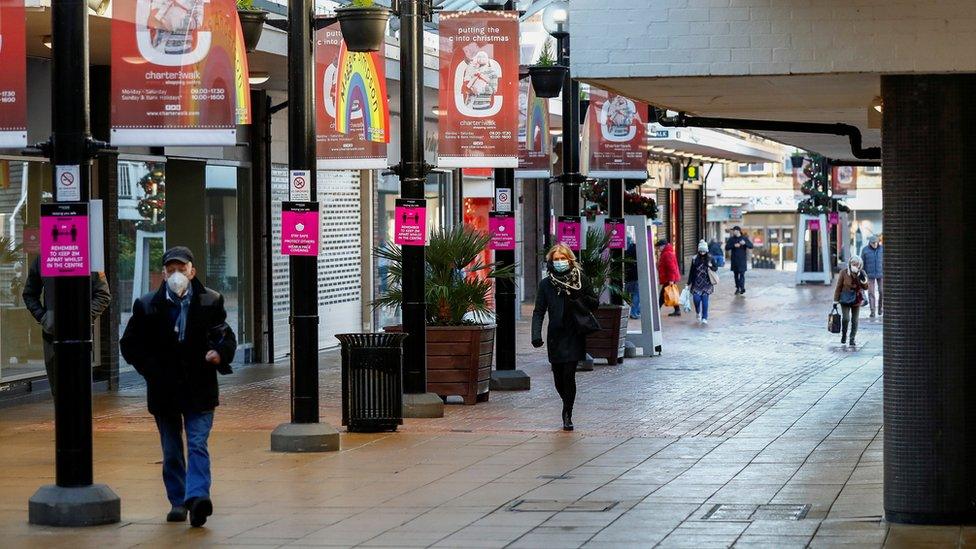
The UK has identified 77 cases of the coronavirus variant first detected in South Africa, the health secretary has said.
Cases are linked to travellers arriving in the UK, rather than community transmission, Matt Hancock added.
He told the BBC's Andrew Marr cases were under "very close" observation and enhanced contact tracing was under way.
Ministers are due to meet on Monday to consider imposing tougher restrictions on people arriving from abroad.
Scientists have said there is a chance the South African variant may harm the effectiveness of current vaccines.
Meanwhile, Mr Hancock said that "three quarters of all the 80-year-olds in the country and a similar number of care homes" have received their first doses of the vaccine.
Both the Pfizer-BioNTech and Oxford-AstraZeneca vaccines require two doses, and figures so far reflect those given the first dose.
Mr Hancock said that it was "far too early to say" what proportion of the population needed to be vaccinated before lockdown restrictions could be eased.
All viruses, including the one that causes Covid-19, mutate, and variants have been first located in the UK, South Africa and Brazil.
The South Africa variant has been found in at least 20 other countries, including the UK.
Mr Hancock said that all the South Africa variant cases in the UK were linked to travel.
"That's why we have got such stringent border measures in place against movement from South Africa," he added.
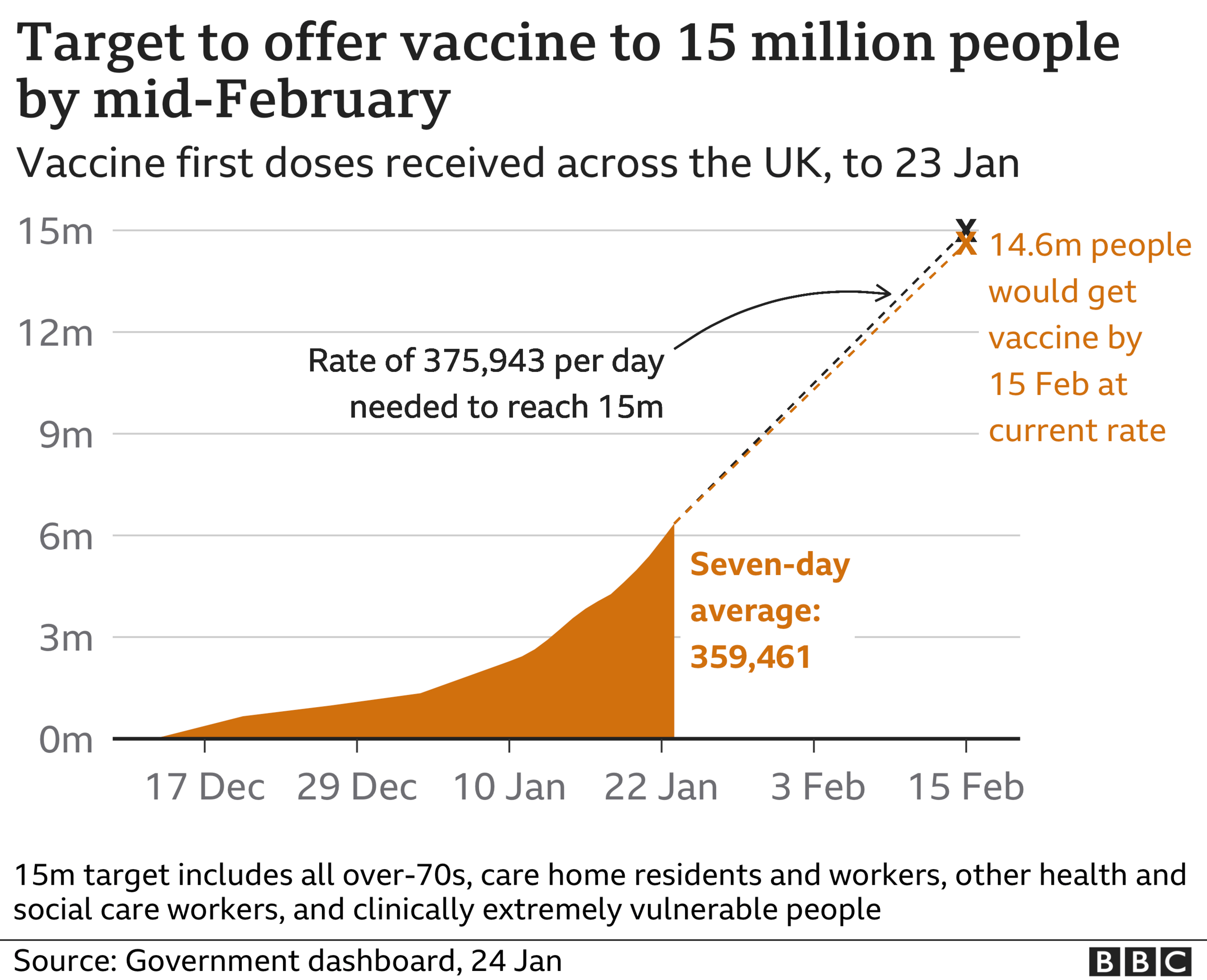

The UK closed all travel corridors last week until at least 15 February, with almost all travellers arriving in the country now required to show proof of a negative Covid-19 test to be allowed entry.
Prime Minister Boris Johnson has not ruled out bringing in tougher measures at UK borders, telling a Downing Street news conference on Friday: "We don't want to put that (efforts to control Covid) at risk by having a new variant come back in."
Ministers are set to discuss whether to tighten border restrictions further, including the possibility of hotel quarantines for travellers.
Mr Hancock said: "We have got to be cautious at the borders."
Asked for a date on when lockdown restrictions might end, Mr Hancock said it was "one of the many things that we don't yet know the answer to".
Matt Hancock on easing restrictions: "We don't know the answer"
Government data , externalon 14 January showed there were 35 confirmed cases of the South Africa variant identified in the UK, and a further 12 "probable" cases.
Mr Hancock said nine cases of the Brazil variant had been found in the UK, adding "we are monitoring each and every one very closely".
Shadow foreign secretary Lisa Nandy told the BBC's Andrew Marr Show that Labour had been "pushing the government to take tougher measures at the border since last spring".
She said: "We would fully expect the government to bring in tougher quarantine measures, we would expect them to roll out a proper testing strategy and we would expect them as well to start checking up on the people who are quarantining.
"Only three out of every hundred people who are asked to quarantine when they arrive into the UK actually face any checks at all - that's just simply not sufficient."

LOOK-UP TOOL: How many cases in your area?
SOCIAL DISTANCING: Can I give my friends a hug?

On Friday, Mr Johnson said there was "some evidence" the UK variant may be associated with "a higher degree of mortality".
The UK government's chief scientific officer, Sir Patrick Vallance, said there was "a lot of uncertainty around these numbers" but that early evidence suggested the variant could be about 30% more deadly.
The PM said on Friday that there was evidence that both the Pfizer-BioNtech vaccine and Oxford-AstraZeneca jab were effective against the variant first detected in the UK.
Sir Patrick has warned that the variants in South Africa and Brazil might "have certain features which means they might be less susceptible to vaccines".
But he said "there is no evidence" that the two variants have transmission advantages over those already in the UK and so having cases here doesn't mean "they will take off".
Meanwhile, England's deputy chief medical officer warned that people who have received a Covid-19 vaccine could still pass the virus on to others and should continue following lockdown rules.
Writing in the Sunday Telegraph,, external Prof Jonathan Van-Tam stressed that scientists "do not yet know the impact of the vaccine on transmission".
He said vaccines offer "hope" but infection rates must come down quickly.

Can vaccinated people spread coronavirus?

It's a key question but the fact is that no one can be sure.
That's because the trials of the vaccines explored the safety of the drugs and how well they prevent people from becoming ill - with good results for both.
But they did not investigate whether vaccination also stops infection and therefore whether people who've been immunised can still spread the virus to others.
If a vaccinated person did become infected, they probably wouldn't realise because they wouldn't have any symptoms. That's why health officials and ministers are so concerned.
It's possible that the antibodies boosted by the vaccine suppress the effects of the virus but don't eliminate it from the upper airway.
Many scientists are cautiously hopeful that in this scenario, the amount of virus would be reduced but they're waiting for the results of studies under way now.
And until there's an answer, it's difficult to calculate how and when it's safe to ease restrictions and allow people to mix again.

A further 610 deaths within 28 days of a positive coronavirus test were reported in the UK on Sunday - down from 671 deaths last Sunday - in addition to 30,004 new infections.
The number of positive cases has fallen for the fourth day in a row and is the lowest figure since before Christmas.
The death figures tend to be lower on a Sunday and Monday because of weekend lags in reporting of the data.

Meanwhile, more than six million people have had their first dose of a Covid vaccine - with the figure now standing at 6,353,321.
Nadhim Zahawi, the minister responsible for the vaccine rollout, said on Twitter, external that 6,353,321 of the "most vulnerable and frontline heroes" had received a first dose of the vaccine, but there was still "much more to do".
There were 4,076 Covid patients in mechanical ventilation beds in UK hospitals as of Friday, according to government data., external
That is higher than during the first wave, when the peak was 3,301 on 12 April.
In other developments:
Israel's health minister Yuli Edelstein said some people "still get sick" with coronavirus after getting the first dose of the vaccine, but that there are "some encouraging signs of less severe diseases, less people hospitalised after the first dose"
Ministers have been urged to intervene after 500 staff at the UK vehicle licensing agency's contact centre in Swansea contracted coronavirus.
Fines amounting to more than £15,000 have been issued after 300 attended a rave in Hackney, and a student party in Birmingham broken up by police attracted people from up to 200 miles away


Related topics
- Published18 January 2021
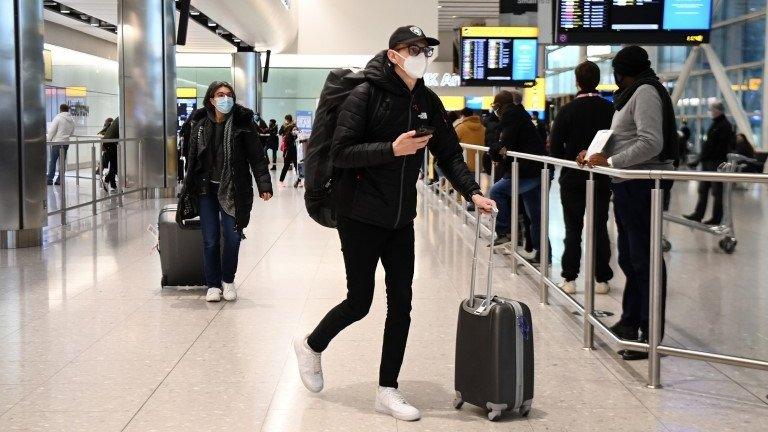
- Published4 March 2022
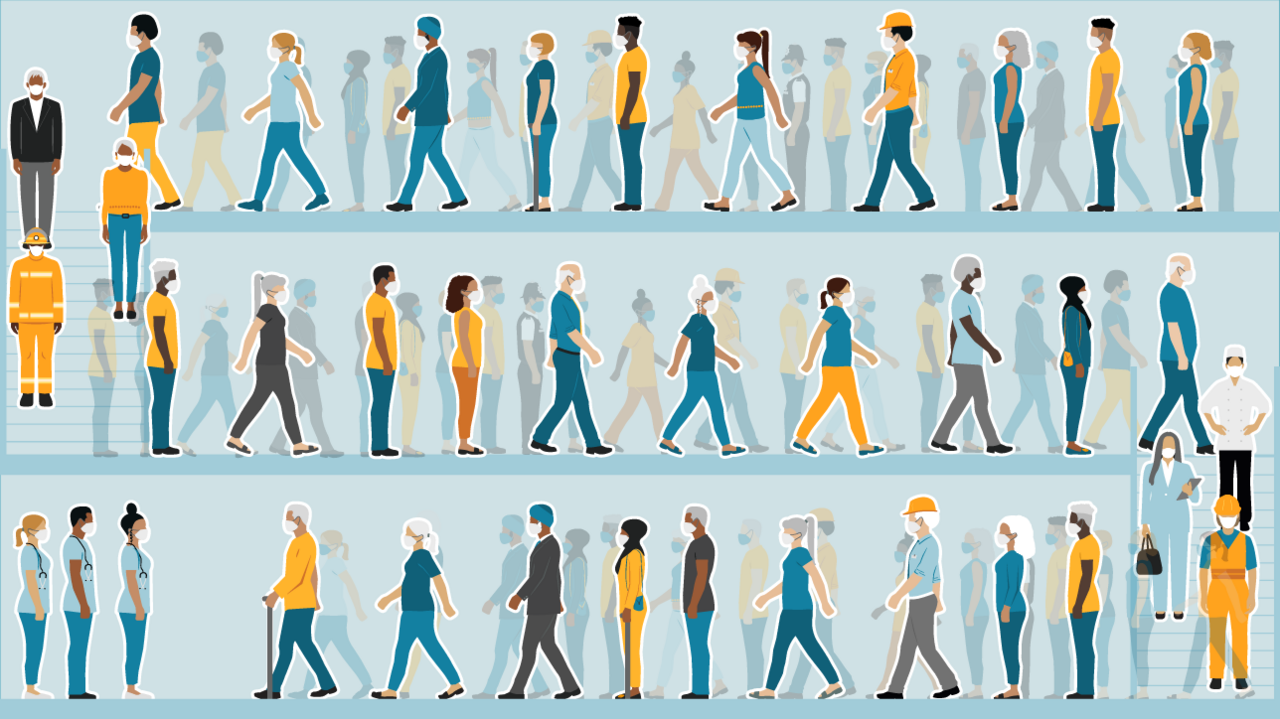
- Published22 January 2021
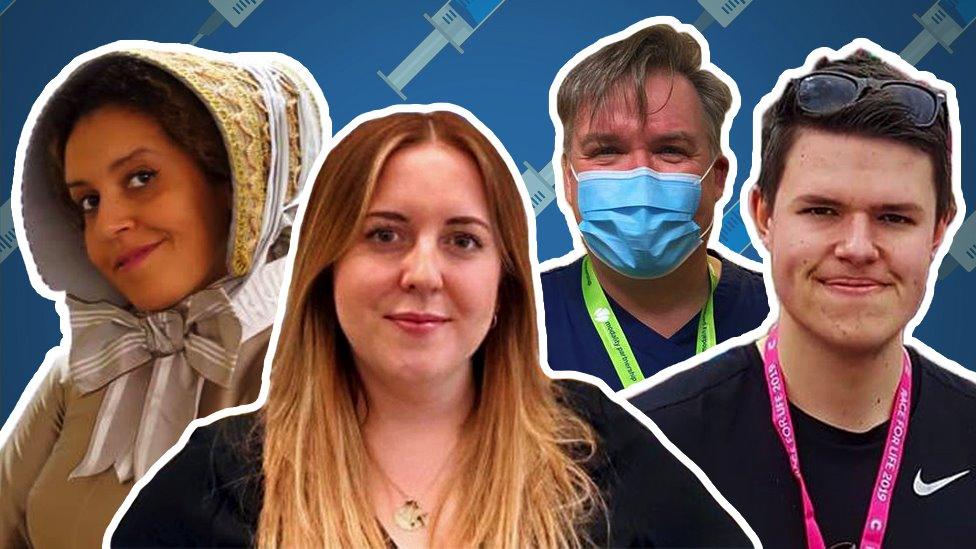
- Published22 January 2021